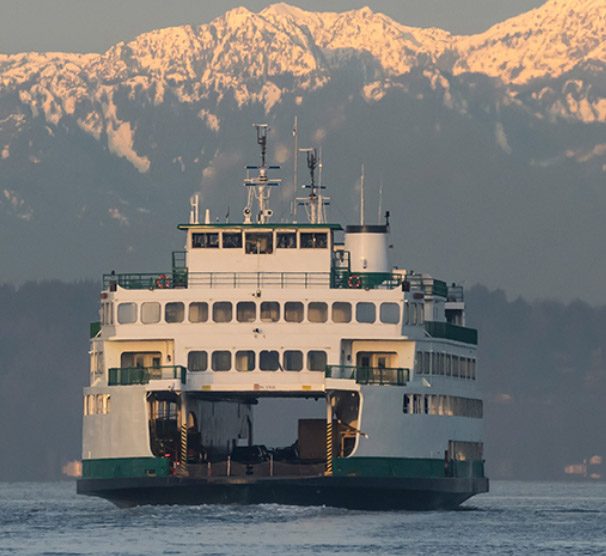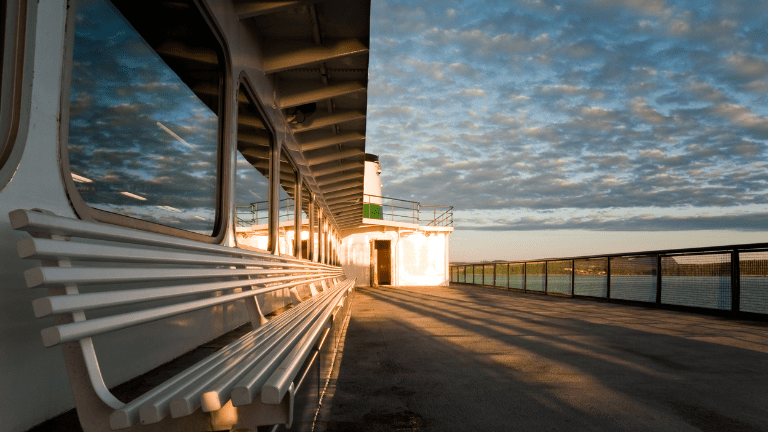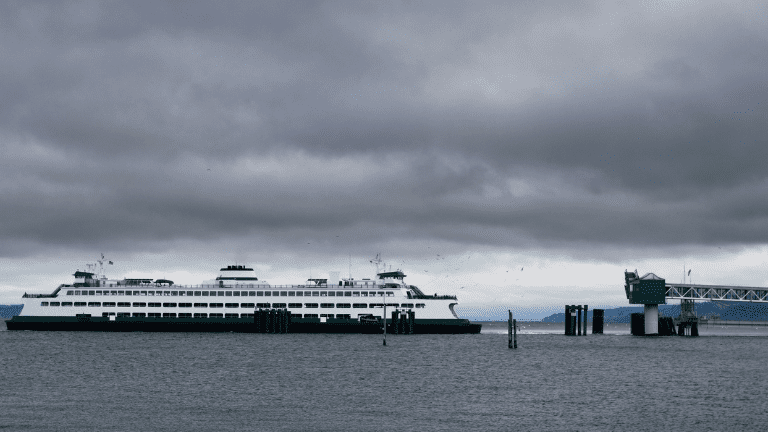Home » Practice Areas » Ferry Workers
Ferry Worker Injury Lawyers
Have you been injured while working on a ferry?
Ferry workers are unique in that most persons working aboard ferry vessels are working for a state and are, therefore, unique in their ability to pursue claims following maritime injury. Claims may need to be pursued in full awareness of the benefits and limitations of being a state employee ferry worker.
In addition to large state-run ferries, there are also many small, privately owned ferries that service the many outlying islands in Washington, Oregon, and Alaska. Injury At Sea has been involved in maritime injury cases involving privately-owned ferries. Private owners (such as maintenance associations) may not be fully aware of their obligations. The fact that a ferry is privately owned does not necessarily mean the injured worker is not entitled to the same benefits under federal law as a fully licensed or state-owned ferry.

Who Qualifies as a Ferry Worker?
A ferry worker is any person employed, trained and skilled to work in various roles onboard a ferry, including:
- Captains
- Deckhands
- Crew
- Chiefs
- Engineers
- Communications Officers
- Electricians
- Cooks and Stewards
- Maintenance Workers
Common Ferry Worker Injuries
Common causes of ferry worker injuries on the job include:
- Vessel accidents
- Hypothermia
- Frostbite
- Faulty or improperly maintained equipment
- Slips and falls
- Cargo accidents
- Chemical injuries
Maritime Law and Compensation
Ferry workers are usually entitled to the full protections enumerated in the Jones Act and general maritime law. This may mean the ferry worker, whether they work on a state ferry or a privately owned ferry, may be entitled to recover for:
- Lost earnings, including future lost earnings
- Pain and suffering
- Expense of retraining
- Full medical benefits
- Compensation for earnings due to the end of the worker’s contract
- Living expense(s) during medical treatment

Benefits Under the Jones Act
The Jones Act is one of the most comprehensive sources of maritime employee injury benefits, as it allows workers to collect maintenance and cure as well as the ability to file negligence and unseaworthiness claims against shipowners. Ferry workers may be covered under the Jones Act if they were injured while on a vessel which they had a standing work relationship. This may apply to a ferry worker who has been assigned to a vessel for a certain duration—such as a port-to-port journey—or only performs activities for one vessel in navigation.
Workers’ Compensation Benefits
Ferry workers may be covered under the employer’s workers’ compensation coverage. This insurance is particularly useful to contracted seaman who suffer injuries during voyages or activities on land, which may be excepted under the Jones Act.
Benefits Under the Longshore and Harbor Workers Compensation Act (LHWCA)
Ferry workers who do not qualify for Jones Act benefits may be covered under the LHWCA, which provides wage replacement benefits based on the seaman’s average weekly salary.
Benefits Under Maritime Law
Any person who suffers an injury at sea has right under general maritime laws, including the right to file lawsuits for products liability and wrongful death.
What should I do if I have been injured at sea?
First and foremost – seek medical attention. If you have been injured due to negligence, then get an experienced lawyer working on your injury case right away.
Injury At Sea maintains a staff of marine accident investigators with ties to maritime communities throughout the Pacific Northwest. We will start investigating your case right away. Moreover, we will fight to obtain the most you are allowed under maintenance and cure, which provides a stipend for you to survive while you are recuperating from your injury.
The attorneys of Injury At Sea can explain your best options if you were hurt working on a ferry. We can make sure you receive what you are entitled to under the law, including past and future medical bills, past and future wages, pain and suffering damages, physical disfigurement, and maintenance and cure payments.
Contact our maritime attorneys today and tell us your story. Our firm is located in Seattle and has more than 80 years of experience representing clients located in Washington, Oregon, Alaska, and California. Call us today for a no-obligation assessment of your case.

Successful Cases
$4.2 Million
$3 Million
$1.8 Million
$1.55 Million
$1.5 Million
$1.5 Million
$1.15 Million
$1.15 Million
$1.1 Million
It’s our name. It’s our business. It’s what we do.
We’re here for you 24/7.